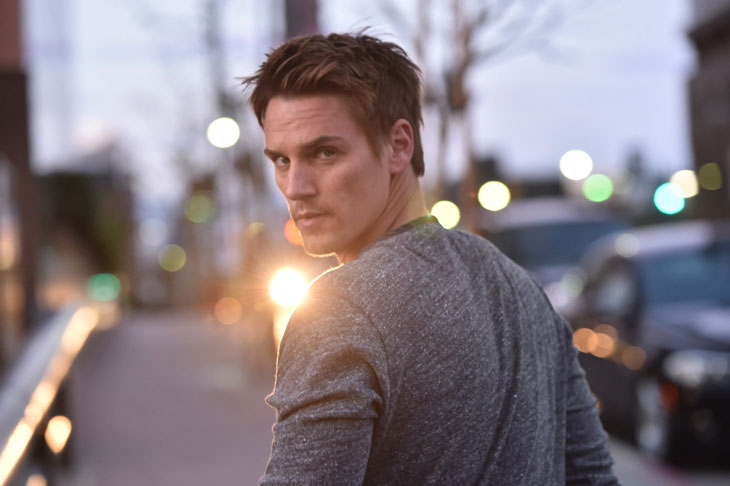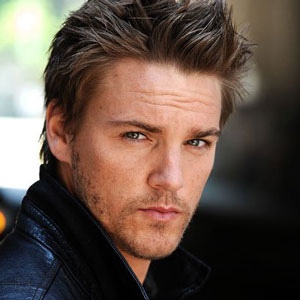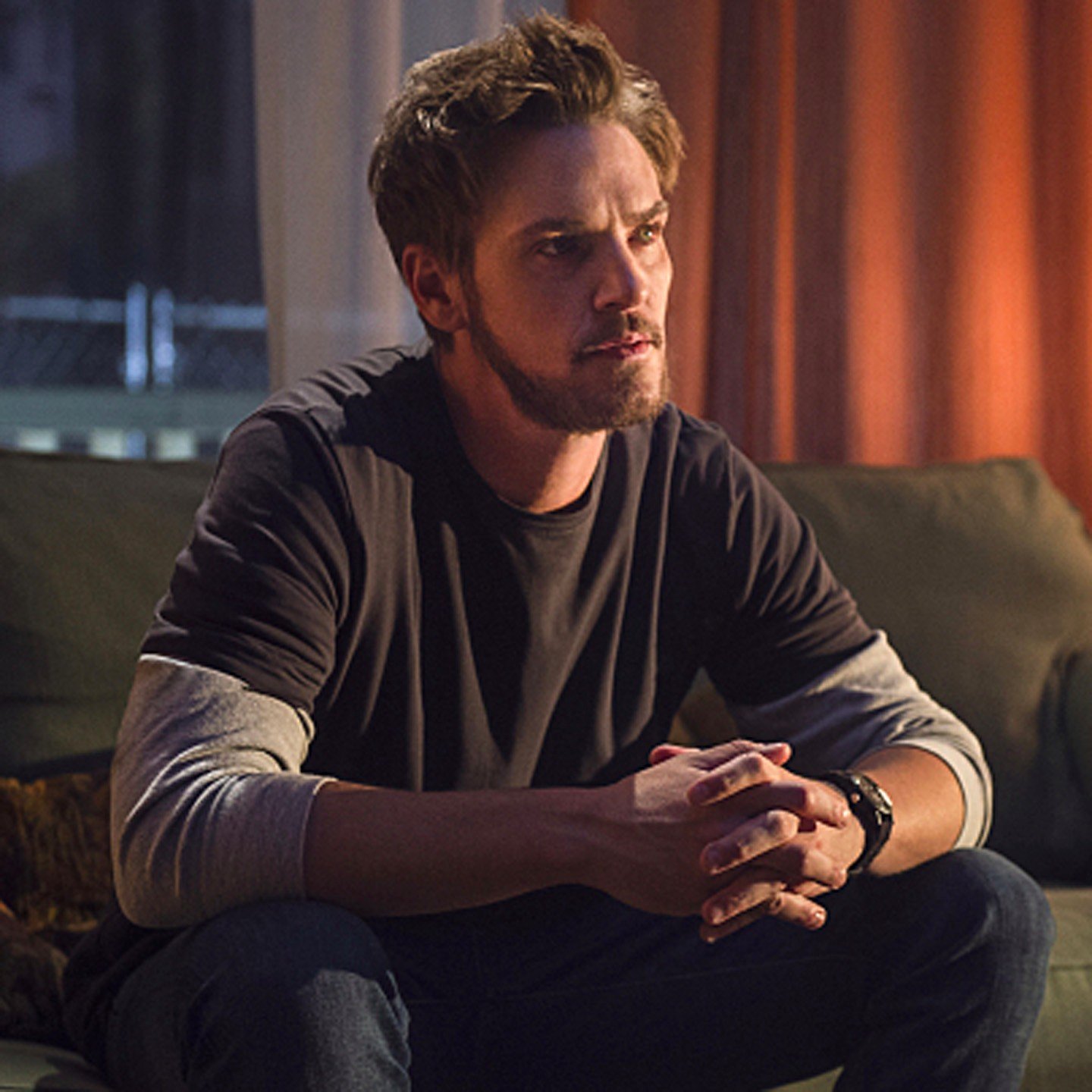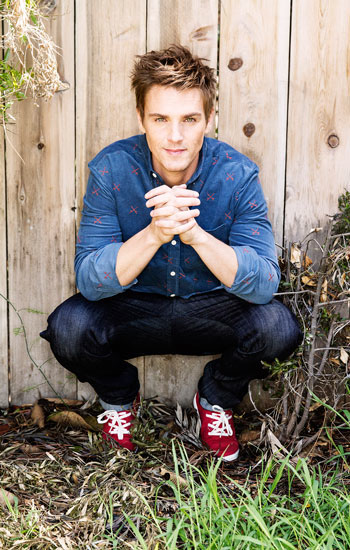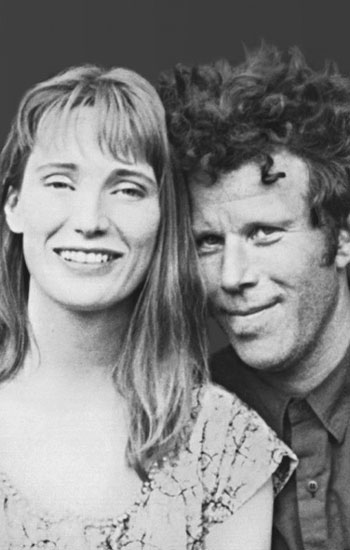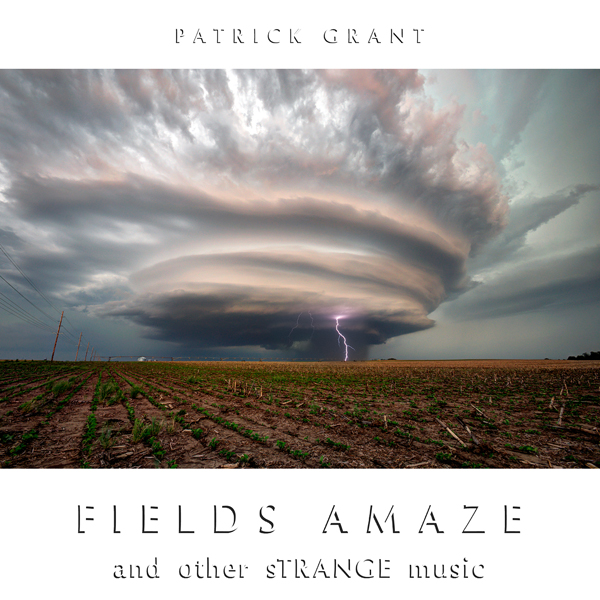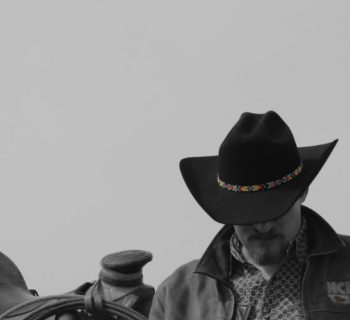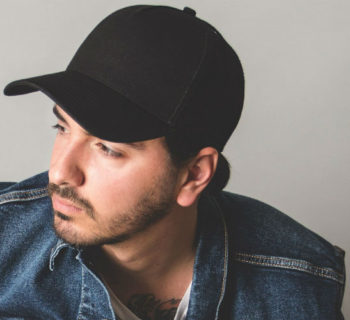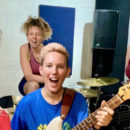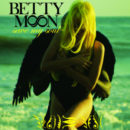Riley Smith Channels Strength on new EP
Riley Smith's new self-titled EP, released in July 2017, sounds like it's coming from a sensitive yet intense high plains drifter, but according to Smith, that’s no contrived persona—just him being himself and contemplating life as it unfolds.
Although the album is classifiable as pop country, it’s not a neat fit at all. There's a spectrum of sounds across the six tracks, including traditional Americana, gritty blues rock, and the tender sentiments of new age music. The evolution of Smith's music becomes even clearer when compared to the three albums he put out between 2007 and 2010 with composer friend Henri O'Connor under the name The Life of Riley: The Life of Riley, Long Way Home, and Live in Hollywood at the Hotel Café.
"Not necessarily every song is something I'm going through at the moment, but every song is something I can relate to,” he says. "It's all me."
Smith never rushes into the songwriting process, insisting on cultivating a bit of sangfroid before sitting down to write about anything that touches him deeply.
"I find a lot of times when you're going through something, it's a little difficult to put it down on paper," he explains. "If you go through a breakup, it's just too uncertain. It's so close to home and your emotions are so heightened that it's hard to get really intricate with the words, so you just state the obvious. Later you have the same emotion as when you went through it, but you're calmer. This helps explain the story better."
A case in point is the reflective first verse of "I Can't Keep on Missing You:"
I know you been California dreamin'
I been missing your Tennessee smile
We've been talking every other weekend
I ain't even seen you in a while
Well I hear that the city's full of angels
But all I see is devils in disguise
I know this is where dreams are made
But you're the one I'm dreaming of tonight
Smith's fervent, honey-smooth vocal delivery adds authenticity to the lyrics, which often carry that traditional country music cleverness of making you think it's all cliché before delivering a surprise. For example, "I'm on Fire" sounds like wistful longing after a one-night stand when in fact the heart's been shattered by the ending of a long-term relationship:
It's been four months and thirteen days, but it feels longer
Thought your memory would just fade away, but it got stronger
And I can't stop thinking about you—I'm on fire
And I can't stop thinking about you—I'm on fire
Any other day I'd be okay, but tonight I'm drinkin' alone
And I can't stop thinking about you
Can I come home?
When settling into the creative country groove, Smith has only to remember growing up on horseback on a ranch in Marion, Iowa, riding to horse shows with his family. In his teens Riley won the American Quarter Horse Youth World Championship and later became the youngest person ever to serve as president of American Quarter Horse Youth Association. It all makes for a bank of idyllic memories to draw from.
"I didn't realize how good I had it until becoming an adult and looking back on it," he says. "It was a really unique way to grow up. To me it was normal; I didn't know any different. I was really lucky."
So where did music come in?
"I guess I was born with it. I remember putting on concerts for my family when I was just a little kid. When we had family gatherings I would make everyone sit down while I put on a concert. I'd sing Hank Williams Jr. and Michael Jackson. We spent so much time driving to horse shows, and music was always on. It was predominantly country, but also the Beatles and Bob Seger.”
Smith's "other" career is acting, a path that turned out to be at least indirectly instrumental in launching his musical career as well, and directly responsible for the deluge of acting jobs coming his way.
"I'm looking at scripts right now," he explains. “I've been really picky about my roles following Frequency [the sci-fi drama in which he played NYPD detective Frank Sullivan] because it was a great role and in my opinion a great show."
"It was a really unique way to grow up. To me it was normal; I didn't know any different. I was really lucky."
Smith didn't actually have any acting ambitions until his all-American-cowboy good looks got him signed to a Tommy Hilfiger modeling campaign. As many models do, he used the money earned from modeling gigs to pay for acting classes. But few other models were able to display his caliber of natural talent.
Since then he's appeared as both a regular and a guest on many television shows, including 7th Heaven, CSI, Criminal Minds, Joan of Arcadia, Freaks and Geeks, Summerland, 24, 90210, Ghost Whisperer, True Blood, and Nashville. His success has also led to the silver screen, with film credits in New York Minute, Not Another Teen Movie, Bring it On, and Weapons.
Even in a career as successful as this, acting comes with long time gaps, on set and off, and acting by itself isn't enough to keep creative restlessness at bay. Acting roles keep Smith busier than most actors, but his leisure hours aren't taken up with mindless or self-destructive escapism; he uses that time to make music.
Whereas the acting career practically landed in his lap, the musical path was the result of hard work and gumption. When he was a child his mother sent him to piano lessons, but his heart wasn't in them (they didn't jibe with his football obsession). Later on song ideas started rolling around in his head, but he found he couldn't actually compose without an instrument. It was in Vancouver, having been inspired by another actor who entertained the film's cast in the evenings on his guitar, that Riley finally bought himself an old guitar, learned his first five chords, and wrote his first song.
"The first song I ever wrote," he remembers, "was 'Rainin' in Vancouver.' It appears on the Life of Riley record."
Filling time gaps between acting gigs with other meaningful artistic pursuits is a healthy move for successful actors, helping them dodge the anxiety that comes with the uncertainty of show business. Back in May Kevin Bacon, another actor cum musician, in an interview with Offbeat Magazine, put it like this:
"It’s a cliché, but I always like the making of the music. The rest of it—and I feel the same way about acting—my tolerance for travel and press, sound checks and hotels and buses, that kind of stuff, that’s something you have a lot of patience for when you’re 19. But the playing is always fun. Even if a show does not go well, there’s a good one right behind it."
Smith would agree that music making provides a special creative freedom and personal autonomy—and a chance for self-actualization—not often granted actors.
"With music I get to be more peaceful," he admits, "to express my words instead of someone else's. I can do music anywhere at any time—I don't need a scene partner, I don't need an acting partner, and I don't need a job."
In the plethora of country music subgenres out there, what kind of country music is Riley Smith's? According to him, he started out immersing himself in the Nashville sound but soon developed his own take on tradition.
"Right now pop country's really big," he points out. "It's got this vibey mood to it, so I want some of that in there to kind of stretch the genre box."
How does Smith nurture the muse? "I need to be alone in a safe place where I can create. Sometimes it just hits you, and you have to get up and go." Indeed, friends and family sometimes have a hard time coaxing him out of his home studio.
"It's not always easy for loved ones when you say you'll be at dinner and you're not, but that's part of knowing an artist—you have to understand that we're addicted to the art. I'll be at a concert or bar with my buddies, and it's literally like a drug, and I'll say, 'I gotta go.'"
What advice would Riley give his 15-year-old self, knowing what he knows now?
"Enjoy the journey! When you're younger you want to be famous, or a huge star, and you're so focused on getting there. As I've gotten older I've realized that if you're a true artist and a true competitor, you're never 100% happy with where you're at—you're always wanting to climb to the next level. And you should; just don't let that cancel out the joy of the journey. I still have times when I want things to happen faster than they need to happen, and I try to remind myself to enjoy the journey."
It's not always easy for loved ones when you say you'll be at dinner and you're not, but that's part of knowing an artist—you have to understand that we're addicted to the art.
The philosophy also ties in with Smith’s faith, which helps him find direction and fulfillment. "I'm a Christian, and any time I begin to question I turn to God. A lot of times I get antsy about wanting to get somewhere, and I get feeling anxious and insecure. But if you take care of where you are, you'll get to where you're going."
Sounds a lot like the sentiment behind the track "Selfish:"
Some day selfish is gonna get old,
Some day this road's gonna take its toll,
Chasin' dreams, wakin' up alone.

